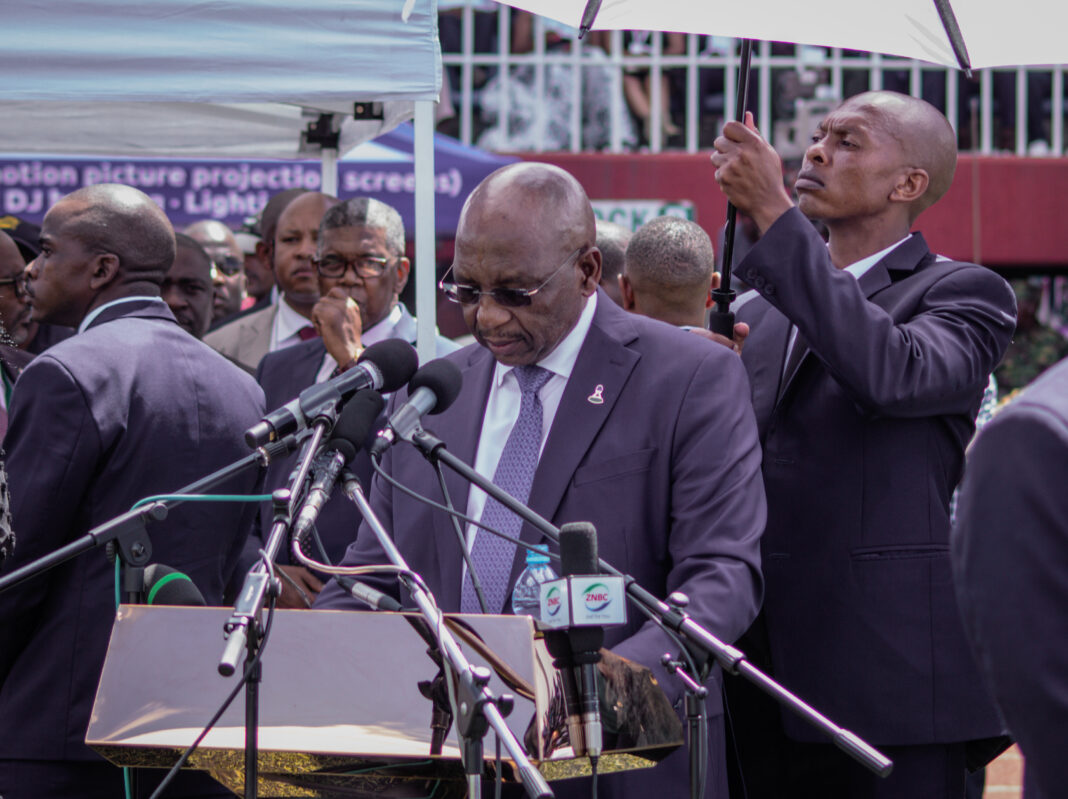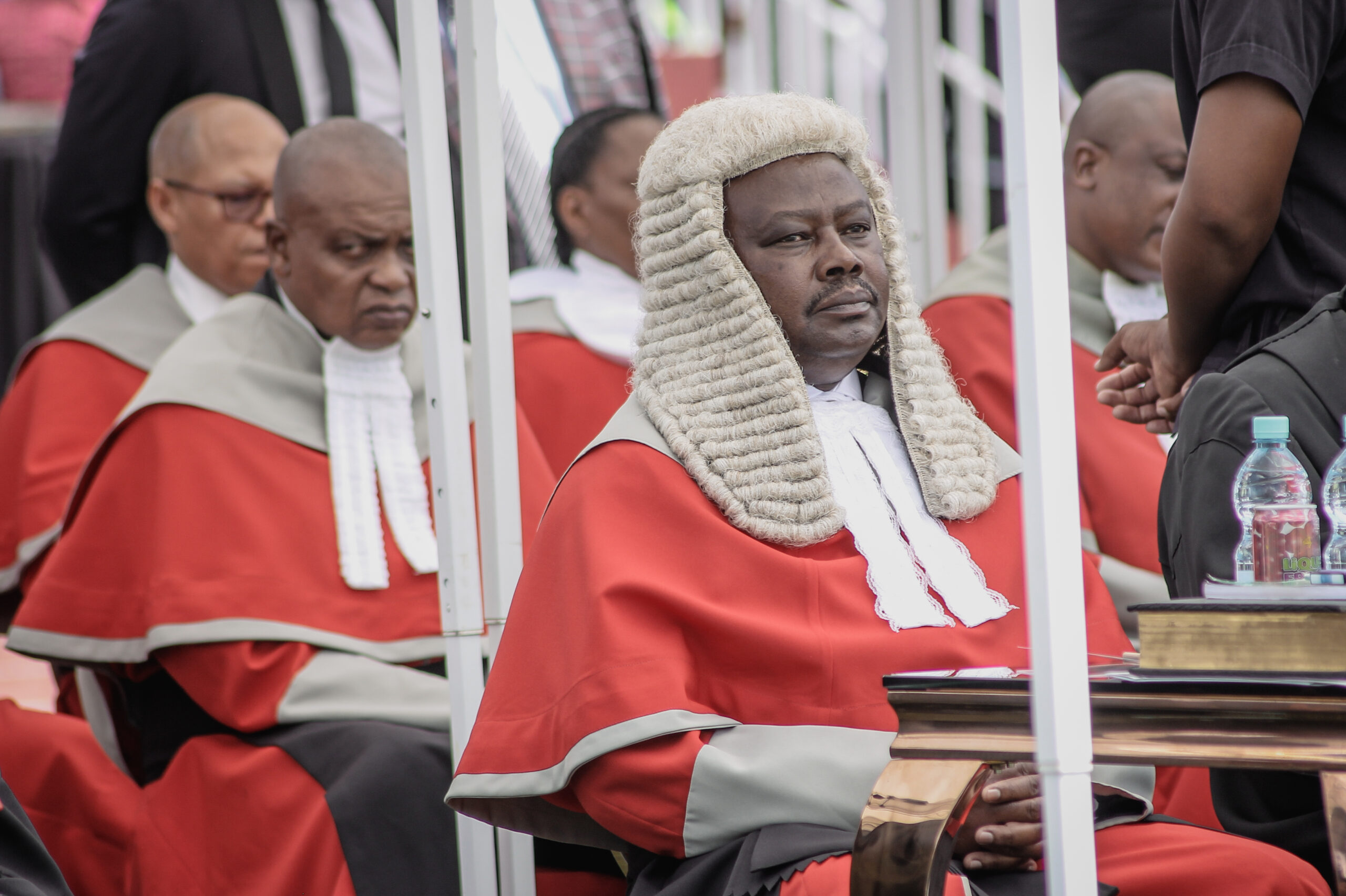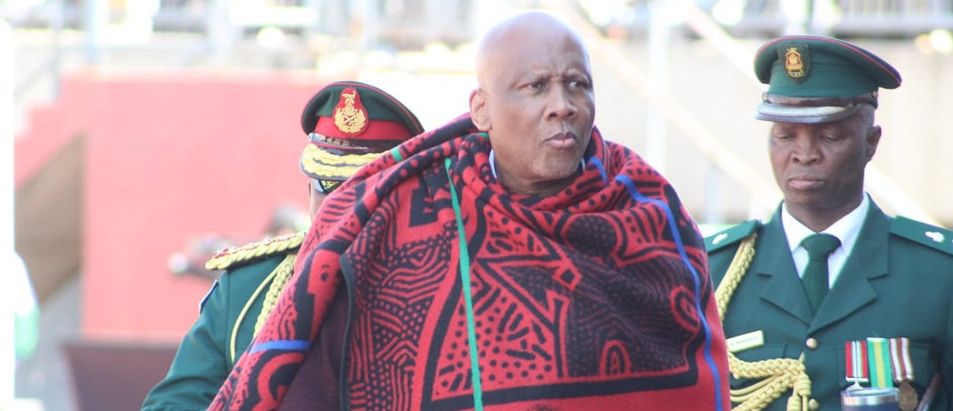Staff Reporter
Prime Minister Ntsokoane Samuel Matekane yesterday welcomed the Appeal Court’s decision regarding a case challenging the constitutionality of a parliamentary standing order infamous for reviving dead bills.
Standing Order No. 105(B) gave the National Assembly the power to revive what many think was left for dead by the previous parliament, the 11th Amendment to the Constitution Bill of 2022, also known as the Omnibus Bill.
It is like the National Assembly held the keys to the legislative afterlife!
The seismic Appeal Court judgment stemmed from a constitutional challenge brought forth by a local activist and chairperson of the Media Institute of Southern Africa (MISA) Lesotho, Kananelo Boloetse, MISA Lesotho, and a political party Yearn for Economic Sustainability (YES).
This was after back in August 2023, a whopping nine months into Matekane’s tenure, the government stirred the pot by trying to resurrect the Omnibus Bill.
However, the High Court favoured parliament’s autonomy to regulate its procedures, leaving Boloetse, MISA Lesotho, and YES disheartened.
Boloetse, powered by his unwavering belief against reviving the Omnibus Bill to its former state, appealed to the Appeal Court. His steadfast stand argued for a complete overhaul of the legislative process, slamming the door shut on any quick-fix shortcuts for the bill’s passage.
“The appeal is upheld, setting aside the High Court’s order. Circular no. 5 of 2023 and Standing Order no. 105B are hereby declared constitutionally invalid and thus null and void,” Justice Kananelo Mosito, president of the Appeal Court, declared, wielding a legal directive that reverberated across the country.
The ruling carried immense weight, restraining not just the national assembly but extending its reach to the throne, binding His Majesty King Letsie III from endorsing any bill that lapsed during the dissolution of the 10th parliament in July 2022.
Addressing stakeholders at a government-hosted breakfast meeting in Maseru yesterday, Matekane said: “We welcome the court’s verdict that parliament should not resuscitate Bills that lapsed with the previous parliament.”
He outlined plans to re-table the Omnibus Bill when parliament reconvenes after the Christmas recess, in adherence to the court’s ruling.
Detailing the government’s approach, Matekane highlighted three key principles: honoring past efforts, expediting the current progress, and ensuring inclusive participation moving forward.
“We appeal to all leaders to support this reform process wholeheartedly, utilizing their roles bestowed by the people to steer our country toward the dignity it deserves,” he urged, calling for unified backing to make the project a national success.
At the same gathering, Minister of Justice and Law, Richard Ramoeletsi, emphasised the government’s responsibility toward Lesotho’s destiny.
“Honourable Members of the two Houses of Parliament, as a Government we owe it to the country to take ownership of the destiny of our nation and expeditiously facilitate the implementation of the national reforms for Lesotho’s own benefit,” he said.
In a subsequent meeting with Heads of Diplomatic Mission, International Organizations, and Development Partners, Ramoeletsi underscored the significance of keeping Basotho well-informed about the reform process.
“… reforms are the voice of Basotho. Basotho are the ones who have said that they want the reforms and they are the ones who are looking forward to their views being implemented. They are, therefore, the ones who need to be given assurance from time to time that their views have been listened to, hence this gathering,” he added.
Summary
- 105(B) gave the National Assembly the power to revive what many think was left for dead by the previous parliament, the 11th Amendment to the Constitution Bill of 2022, also known as the Omnibus Bill.
- “We appeal to all leaders to support this reform process wholeheartedly, utilizing their roles bestowed by the people to steer our country toward the dignity it deserves,” he urged, calling for unified backing to make the project a national success.
- “Honourable Members of the two Houses of Parliament, as a Government we owe it to the country to take ownership of the destiny of our nation and expeditiously facilitate the implementation of the national reforms for Lesotho’s own benefit,” he said.

Your Trusted Source for News and Insights in Lesotho!
At Newsday Media, we are passionate about delivering accurate, timely, and engaging news and multimedia content to our diverse audience. Founded with the vision of revolutionizing the media landscape in Lesotho, we have grown into a leading hybrid media company that blends traditional journalism with innovative digital platforms.










